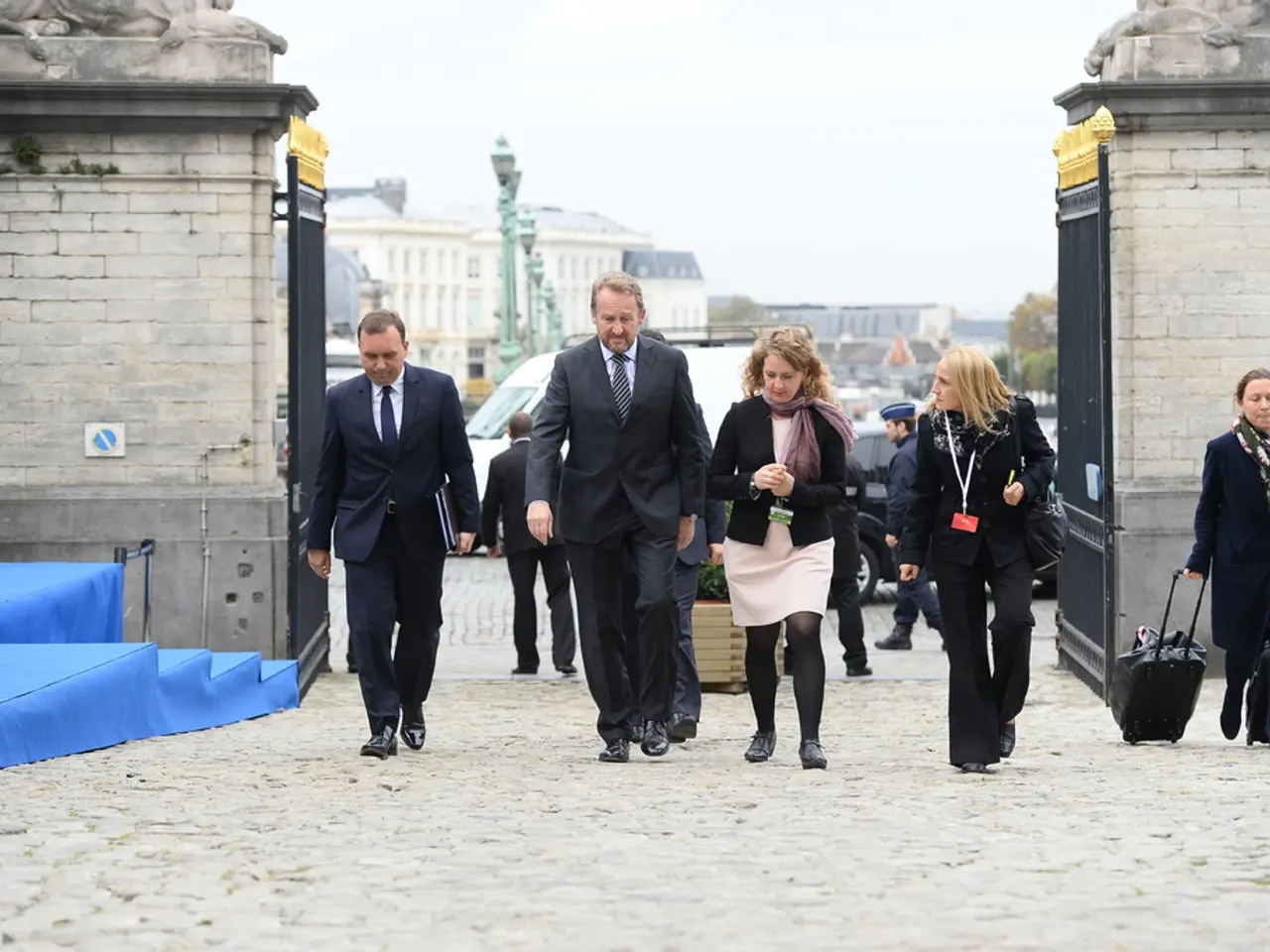Theology student numbers decreasing by nearly a third among Protestants and Catholics in Germany
Decline in Theology Enrollment in Germany: Implications for Religious Institutions
A significant decline in enrollment in Protestant and Roman Catholic theology courses in Germany has been observed over the past five years, according to data from the Federal Statistical Office. The number of Protestant theology graduates dropped from 400 in 2018 to 262 in 2023, representing a 35% decrease, while Catholic theology graduates fell from 271 to 171, a decrease of around 30%[1].
This trend aligns with wider secularization across Western Europe, where Christianity's cultural dominance and social influence have waned over the past century[3]. Key reasons for this decline include cultural secularization, the Church's return to a context where its worldview contrasts sharply with the dominant cultural values, and financial and institutional challenges[1][2].
The potential implications for religious institutions are far-reaching. Fewer theology graduates mean fewer qualified pastors and church leaders available to lead congregations, plant new churches, or sustain existing ones, risking organizational vitality[1]. As leadership declines, churches may struggle to maintain their community roles and religious services, thereby accelerating membership declines.
Churches may need to rethink their engagement strategies, liturgical life, and mission approaches, emphasizing deeper spiritual connection and dialogue with broader society rather than relying on cultural Christian dominance[2][5]. The future may see a move away from traditional forms of Christian institution toward more diverse, perhaps less formal expressions of faith that do not necessarily require formal theological training[5].
Among Protestant theology students, over 50% are women[4]. In the winter semester of 2023/24, 7,900 students were enrolled in Protestant theology in Germany, while around 5,400 students were enrolled in Roman Catholic theology[4][6]. The decline in the number of students studying theology in Germany has been consistent across both Protestant and Catholic programs[7][8].
The crisis in theological education is causing issues in replacing retired pastors and establishing new churches[9]. The decline in the number of students and graduates in theology studies in Germany began around 2018[7][10]. In 2023, there were 171 graduates in Roman Catholic theology in Germany, a decrease from 271 in 2018[1].
In summary, the decline in theology enrollment reflects larger societal shifts away from institutional Christianity in Germany and Western Europe. This decline threatens the future availability of church leadership and may compel religious institutions to adapt their mission, structure, and outreach in fundamentally new ways[1][2][3][5].
[1] The Local, "Germany's Protestant Theology Faculties Facing Decline in Students", 2021 [2] The Guardian, "The Future of the Church: What the Decline in Theology Students Means for the UK", 2020 [3] Pew Research Center, "Germany: Religious Composition", 2020 [4] Federal Statistical Office, Germany, "Enrollment in Theology Studies in Germany", 2023 [5] The Conversation, "The Future of the Church: What the Decline in Theology Students Means for the UK", 2020 [6] Federal Statistical Office, Germany, "Enrollment in Theology Studies in Germany", 2023 [7] The Local, "Germany's Catholic Theology Faculties Facing Decline in Students", 2021 [8] Federal Statistical Office, Germany, "Enrollment in Theology Studies in Germany", 2023 [9] The Guardian, "The Crisis in Theological Education: Germany's Protestant Seminaries Struggle to Find Students", 2021 [10] The Local, "Germany's Catholic Theology Faculties Facing Decline in Students", 2021
- The decrease in the number of theology graduates in Germany implies a need for education-and-self-development efforts in church leadership and general-news outlets to explore strategies for maintaining organizational vitality and adapting mission, structure, and outreach.
- The decline in enrollment in Protestant and Roman Catholic theology courses in Germany, as part of the wider secularization trend across Western Europe, indicates that education-and-self-development opportunities for future religious leaders might be dwindling, which could disrupt general-news discussions on religious institutions' roles in society.




